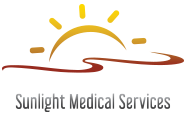There are several different types of heroin addiction treatment.
Methadone (liquid) is a medication that is used to help people with opioid addiction stay off heroin. It blocks the effects of opioids and prevents withdrawal symptoms from happening. It’s usually given in a clinic or doctor’s office every day in the beginning, but patients could get take home doses up to one month when they get stable.
Suboxone (tablets or film) is another medication that helps people with opioid addiction stay off heroin. It blocks the effects of opioids and prevents withdrawal symptoms from happening. It can be taken as a dissolvable film or a dissolvable tablet under your tongue in front of your doctor.
Sublocade (injectable) is an injectable that can help people with opioid addiction stay off heroin by blocking the effects of opioids and preventing withdrawal symptoms from happening. It’s injected by a healthcare provider monthly.
Vivitrol (injectable), a brand name for Naltrexone (pills), can help people with opioid addiction stay off heroin by blocking the effects of opioids and preventing withdrawal symptoms from happening. It has to be taken once every month as an injection by your doctor or nurse practitioner.
